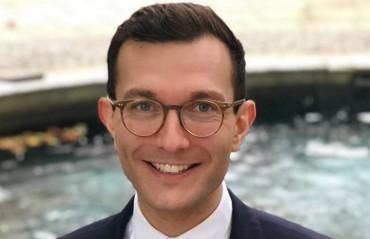Law and Policy Clinic: Fraud and Corruption
From localised bribery to international fraud, the unlawful extraction of money threatens global governance, and the welfare of the world’s poorest people.
Primary page content
This Clinic confronts students with challenging issues in this rapidly evolving area.
Aims and activities
LLB Law students registering with the Fraud and Corruption branch of the Law & Policy Clinic:
- Learn about the legal tools available both in domestic law to assist enforcement agencies in discovering and preventing fraud, and to help victims to recover misappropriated funds
- Consider the effectiveness of international law in dealing with cases of fraud and corruption
- Participate in seminars run by leading experts in the field
- Engage in a piece of supervised independent research work on domestic or international law, which may seek to contribute towards wider projects being conducted by the Clinic’s partners
Supervisor

Aaron Taylor
The Fraud and Corruption branch of the Law & Policy Clinic is supervised by Mr Aaron Taylor, an Associate Lecturer in Goldsmiths Law, in the Law of Financial Wrongdoing, and barrister in practice at Fountain Court Chambers, London.
Aaron practises a broad range of commercial law, and has a particular interest in fraud and financial wrongdoing.
Partners
The seminars within the Fraud and Corruption Clinic will be run both by Goldsmiths Law academics and external partners, including expert legal practitioners, enforcement bodies, and NGOs.
In the 2019-20 academic year, seminars will be led by Corruption Watch UK and the Global Infrastructure Anti-Corruption Centre, amongst others.
Career links
The Clinic feeds into a number of undergraduate compulsory modules, including Criminal Law (year 1), Tort Law (year 2) and Trusts (year 2) and several of the optional modules in years 2 and 3.
It is of particular relevance to students aiming to follow a career in commercial law or financial crime, or those interested in careers in government bodies/ NGOs concerned with business regulation or international corruption.
The Clinic is open to students from other Goldsmiths departments.
Award
Students who participate in the Clinic and complete a satisfactory piece of supervised independent research are awarded a certificate in an end-of-year special ceremony, at which all student-teams engaged with the Law & Policy Clinic get the opportunity to present their work.
Students successfully completing different branches of the Law & Policy Clinic will be given priority in potential applications to the Human Rights Law Clinic in the final year of their studies.